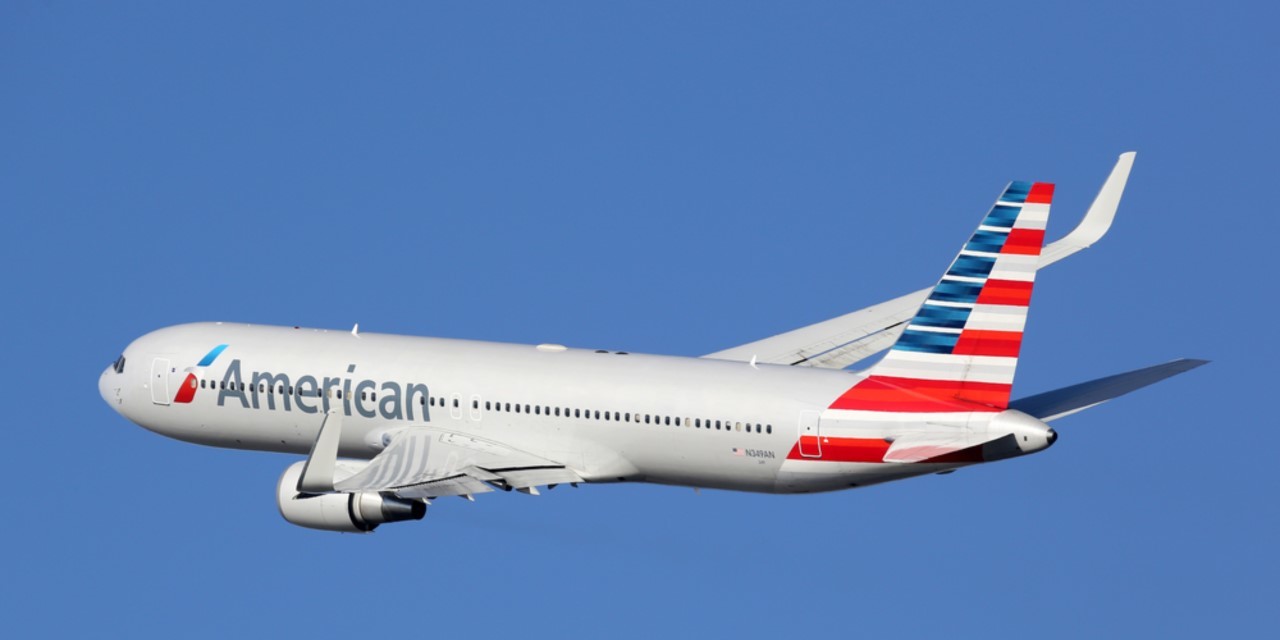American Airlines employees have filed a class action complaint against the carrier and the company that makes their new uniforms, alleging chemicals in the synthetic fabric have sickened thousands of workers.
Six women filed the complaint Aug. 24 in Chicago against American, as well as Twin Hill Acquisition Company, of Texas, a wholly owned subsidiary of The Men’s Wearhouse. Named plaintiffs in the action include flight attendants Lisa Joy, Kathy Runkle, Veronica Vera and Sandra Stuart, pilot Julie Kresko and former flight attendant Deanna Jones. The plaintiffs say more than 5,000 workers “have experienced a cascade of health problems” since American rolled out the new gray uniforms in September 2016, “including, but not limited to, skin rashes, ear and throat irritation, headaches, fatigue, vertigo, the triggering of various auto-immune conditions and adverse effects on endocrine as well as liver functions.”
Jones said American fired her after she took too many sick days following the uniform switch — the company’s first such change in 30 years. The women say even employees who have not yet had a reaction to the new uniforms is endangered because repeated exposure produces increasingly stronger reactions over time, noting: “This is true even if the exposures are short term and at very low concentrations of the chemicals and combinations of these chemicals that are in the Twin Hill uniforms.”
The plaintiffs also maintain the uniforms are dangerous to children female employees might bear if they have worn the uniforms while pregnant. They say some women have lost their hair and also “there have been reports of effects on menstruation including irregular timing, heavier menstruation, and women past menopause who have stopped menstruating commencing to menstruate again.”
Each named plaintiff asserted an individual claim for personal injury damages, while they collectively seek an injunction barring the company from distributing the uniforms, recalling already issued items, cleaning airplanes and other affected workplaces and a medical monitoring fund for diagnosing future symptoms or injuries.
According to the complaint, Twin Hill’s uniforms were tested on pilots two years before being rolled out to the entire workforce. As a result, “many pilots reported adverse physical reactions including rashes, flu-like symptoms, headaches, vomiting and respiratory problems” such that the Allied Pilots Association asked American not use the uniforms, a request the complaint alleges was ignored. They say adverse reactions to the uniforms “were swift and continuous” days and weeks after the rollout.
The plaintiffs further allege a similar incident when Twin Hill sold uniforms to Alaska Airlines in 2011 affecting a third of that carrier’s flight attendants, with some lingering even though Alaska Airlines switched to a new provider in 2014. They say the companies can’t identify any other reason for the outbreak of health issues and noted American let employees revert to blue uniforms within two months and on June 21, 2017, announced it would end its deal with Twin Hill in 2020, “cutting the contract short by seven years.”
The complaint lists the known chemicals in the synthetic uniforms, indicating many are known to affect auto-immune systems and trigger allergies, but said individual chemicals are only one component, as combinations can lead to unintended reactions, and there might yet be undetected substances.
The class would include any of the tens of thousands of people who worked for American and were exposed to a Twin Hill uniform since Sept. 1, 2016. The complaint includes counts of battery and intentional infliction of emotional distress against both defendants and strict liability and negligence against Twin Hill. In addition to class certification, the women seek a jury trial.
Representing the plaintiffs are lawyers from Siprut PC, of Chicago.
